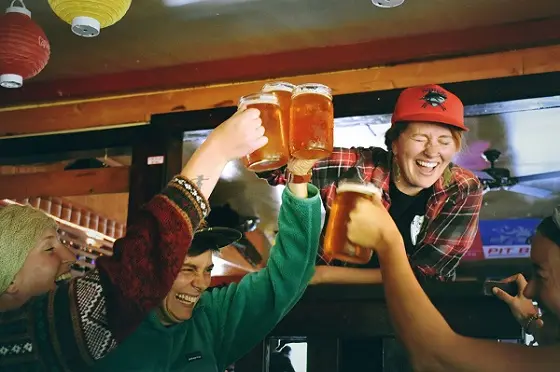In the past year, Poland’s beer consumption has notably decreased, with a total of 3.5 billion liters consumed compared to 6.23 billion liters of non-alcoholic beverages. Despite the drop in beer sales, the overall market value has increased due to rising production costs. This trend highlights a significant shift in Polish drinking habits influenced by various health and lifestyle factors.
The decline in beer consumption is closely tied to the rising popularity of the NoLO (no alcohol/low alcohol) trend. Once considered a niche preference, non-alcoholic and low-alcohol drinks are now gaining traction among Polish consumers. According to “Polityka,” this shift is driven by both a desire to reduce alcohol intake and increased awareness of beer’s caloric content.
Bartłomiej Mokrzycki, General Director of the Polish Brewers’ Employers Association, underscores the importance of non-alcoholic beers in counterbalancing the overall decline in beer sales. He notes that without the boost from non-alcoholic options, the market might be experiencing a more pronounced downturn. Even major sporting events like the Euro or the Paris Olympics failed to reverse the trend, reflecting a deeper cultural shift away from traditional beer consumption.
A significant factor behind the decline in beer consumption is the changing attitudes towards alcohol, particularly among younger generations. Dr. Paweł Wójcik from the Faculty of Management at the University of Warsaw highlights that the increasing popularity of non-alcoholic beers among Generation Z and young adults is part of a broader cultural shift.
For years, beer advertising in Poland emphasized strength, male camaraderie, and sociability, reinforcing traditional notions of masculinity and enjoyment associated with drinking. However, this approach is becoming outdated. Young Poles are increasingly prioritizing health, fitness, and environmental responsibility over the traditional image of beer as a symbol of social status and strength.
Dr. Wójcik observes that while Poland may not yet have a generation of teetotalers, there is a clear trend of young people moving away from strong alcoholic beverages. Instead, energy drinks and other non-alcoholic alternatives are becoming more popular. This generational shift reflects a broader trend towards healthier lifestyles and changing social norms regarding alcohol consumption.
Overall, the decline in beer consumption in Poland is emblematic of a broader cultural and health-conscious shift. As younger generations embrace new drinking habits and prioritize wellness, the traditional beer market faces ongoing challenges. The rise of NoLO options and the changing attitudes towards alcohol are reshaping the Polish beverage landscape, signaling a new era in consumer preferences.


